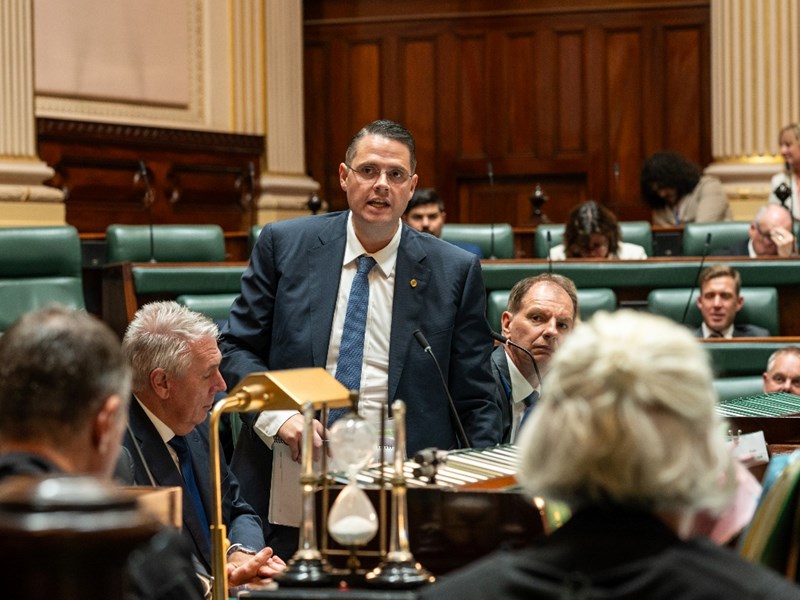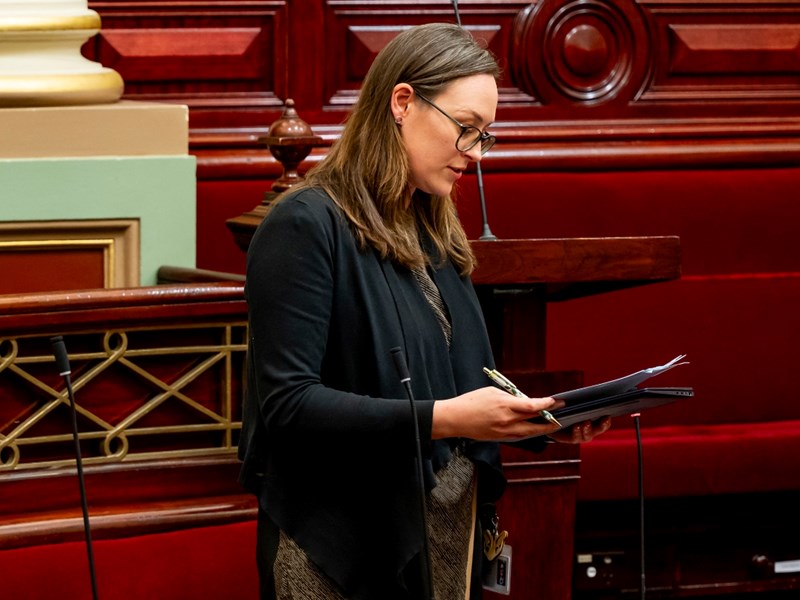- Home /
- News /
- General news
Ritual with responsibility
10 December 2024

Question time is often people’s first exposure to parliament and politics, but its continued relevance and role in our democracy is itself subject to questioning from time to time.
With historical roots in the Westminster tradition of ‘responsible government’, the practice of MPs in both houses meeting for roughly an hour, three times each sitting week and asking questions isn’t written in the Constitution. But it is an accepted convention and function of parliament.
Question time’s purpose is to highlight current issues, examine ministers’ actions, and hold the government accountable, according to the Parliament of Victoria’s own website.
But in practice, it can be rowdy and at times combative, even sometimes described as a shouting match.
As all members of parliament sit in on question time, interjections are often heard, as the various sides jockey for advantage.
And, with media present, it’s a perfect opportunity for a sharp one-liner or a crisp soundbite to make the news.
In Victoria, question time includes questions that non-government MPs ask on the spot, without giving prior notice, as well as questions on constituency issues, plus statements that ministers make.
The Speaker of Victoria’s Legislative Assembly, Maree Edwards, is responsible for enforcing and interpreting the rules of question time in the lower house. These rules, called the standing orders, are a 178-page document that govern parliamentary procedure.
Members can raise a point of order if they consider that one of the rules hasn’t been followed. The Speaker must provide a ruling that either accepts or rejects the point of order raised.
Ms Edwards admits that the behaviour of MPs in the heat of question time can test the limits of the rules and encourages MPs to be respectful.
Manager of Opposition Business, James Newbury, says he raises points of order during question time if he believes ministers haven’t properly answered questions put to them.
‘There is no greater point of parliamentary accountability than question time,’ he says.

He believes it can be improved through changes to the way ministers respond rather than changes to the standing orders.
‘I think that from the top-down, there has to be a kind of culture of answering the questions,’ he says.
Mr Newbury also suggests another way that parliament’s operations could be enhanced. He thinks that the idea of a second chamber, like the Federation Chamber in federal parliament, should be looked at as an additional opportunity for debating bills and for MPs to raise issues relevant to their community.
Over in the Legislative Council, Southern Metropolitan MP Katherine Copsey describes question time as a ‘crucially important mechanism’ for all parties.
‘As a Greens MP, it’s an opportunity to hold the government to account,’ she says.
Importantly, she notes that there are significantly fewer interjections in the upper house, perhaps because the Premier and Opposition Leader reside in the lower house.

‘It’s a marked difference between the chambers. I’m not sure two sides of people yelling at each other is the best way to highlight our democracy,’ she says.
Ms Copsey thinks it can be improved, and questions whether ministers’ statements are the best use of time. She also supports increasing time for other questions, especially for crossbenchers.
‘I think we have the tools – standing and sessional orders – to change things. There’s a lot that can be achieved within our current framework,’ she says.
And, despite any shortcomings it may have, she sees question time as ‘a great opportunity for people to see their parliament in action’.
About the Author

Eric Stone
A participant in the Parliament Express program conducted by the Parliament of Victoria in partnership with Express Media. The program provided mentoring and engagement experiences, leading to a series of articles written by young Victorians for the Victorian Parliament's website.